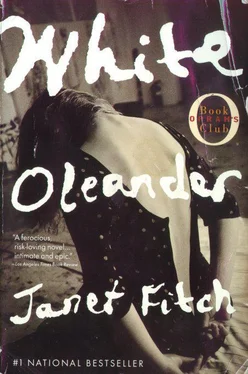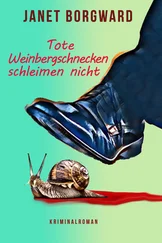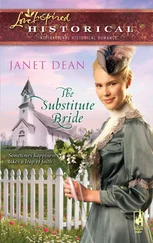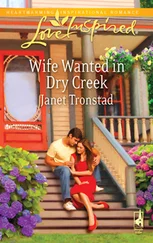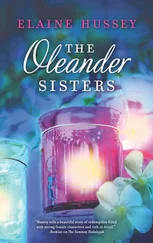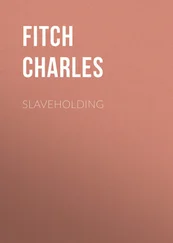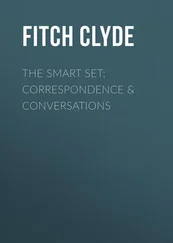Janet Fitch - White Oleander
Здесь есть возможность читать онлайн «Janet Fitch - White Oleander» весь текст электронной книги совершенно бесплатно (целиком полную версию без сокращений). В некоторых случаях можно слушать аудио, скачать через торрент в формате fb2 и присутствует краткое содержание. Жанр: Современная проза, на английском языке. Описание произведения, (предисловие) а так же отзывы посетителей доступны на портале библиотеки ЛибКат.
- Название:White Oleander
- Автор:
- Жанр:
- Год:неизвестен
- ISBN:нет данных
- Рейтинг книги:3 / 5. Голосов: 1
-
Избранное:Добавить в избранное
- Отзывы:
-
Ваша оценка:
- 60
- 1
- 2
- 3
- 4
- 5
White Oleander: краткое содержание, описание и аннотация
Предлагаем к чтению аннотацию, описание, краткое содержание или предисловие (зависит от того, что написал сам автор книги «White Oleander»). Если вы не нашли необходимую информацию о книге — напишите в комментариях, мы постараемся отыскать её.
White Oleander — читать онлайн бесплатно полную книгу (весь текст) целиком
Ниже представлен текст книги, разбитый по страницам. Система сохранения места последней прочитанной страницы, позволяет с удобством читать онлайн бесплатно книгу «White Oleander», без необходимости каждый раз заново искать на чём Вы остановились. Поставьте закладку, и сможете в любой момент перейти на страницу, на которой закончили чтение.
Интервал:
Закладка:
17
I FINISHED the tenth grade at the end of June. I did incredibly well, considering. C in algebra, it was a mercy grade, they never give out D’s as final grades in honors classes. But with Claire’s nightly help, I got A’s in English and history, world art and biology, even Spanish. If she had asked me to go out for football, I would have done that too. To celebrate, Ron took us to Musso and Frank, a restaurant right on Hollywood Boulevard. I’d never noticed it before. Just down from the last apartment I lived in with my mother.
We parked in back and walked down the stairs with their polished brass railings, past the old-fashioned kitchen. We could see the chefs cooking. It smelled like stew, or meat loaf, the way time should smell, solid and nourishing. We walked single file past the scarred wooden counter, people eating steaks and chops and reading Variety , warmed by the grill fires, served by old men waiters in green-and-red jackets. It was a time warp, flash frozen in 1927. I liked it, it made me feel safe.
We were seated in the back room. Ron knew people. He introduced us—“my wife, Claire,” and for a moment I thought he was going to introduce me as their daughter. But it was “and our friend Astrid.” I beat back the sharpness of my disappointment with the thought that Marvel wouldn’t have bothered to introduce me at all, and Amelia, well, we were lucky to get fed.
I drank my Shirley Temple and Claire pointed out movie stars in excited whispers. They didn’t look very glamorous in real life. Smaller than you’d think, dressed plainly, just eating dinner. Jason Robards and another man sat across from us with two bored kids, the men talking business, the kids making bread balls and throwing them at each other.
Claire and Ron split a bottle of wine, and Claire gave me sips from her glass. She touched Ron constantly, his hair, arm, shoulder. I was jealous. I wanted her all to myself. I was aware it wasn’t normal, normal daughters didn’t get jealous of their fathers. They wished both their parents would disappear.
Ron took something from his pocket, concealed in his smooth hand. “For a job well done,” he said.
He put it on my plate. It was a red velvet box, shaped like a heart. I opened it. Inside was a faceted lavender jewel on a gold chain. “Every girl needs a little jewelry,” he said.
Claire clipped it around my neck. “Amethyst is a great healer,” she whispered as she put it on me, kissing me on the cheek. “Only good times now.” Ron leaned forward and I let him kiss me too.
I felt tears coming. They surprised me.
The food arrived and I watched them while we ate, Claire’s dark glossy hair falling against her cheek, her large soft eyes. Ron’s smooth man’s face. I pretended that they were really my parents. The steak and the wine went to my head, and I imagined being the child of Claire and Ron Richards. Who was I, the real Astrid Richards? Doing well in school, of course I was going to college. I listened as they laughed, something about their days at Yale together, though I knew Ron was married to somebody else then, that he dumped his wife for Claire. I imagined myself at Yale, knee-deep in crisp fall leaves, in a thick camel’s hair coat. I sat in dark paneled lecture halls looking at slides of Da Vinci. I was going to study in Tuscany my junior year. On Parents’ Day, Claire and Ron came to visit, Claire wearing her pearls. She showed me where her dorm was.
I touched the amethyst around my neck. Only good times now . . .
RON WAS GONE most of the summer. He came home and she did his laundry and cooked too much food. He made phone calls, worked on his laptop computer, had meetings, checked his messages, and then he was gone again.
It threw Claire when he came and then went so soon, but at least she didn’t pace at night anymore. She worked in her garden almost every day, wearing gloves and an enormous straw Chinese hat. Tending her tomatoes. She’d planted four different kinds—yellow and red cherry, Romas for spaghetti sauce, Beefsteaks big as a baby’s head. We faithfully watched a TV show on Saturday mornings that told her how to grow things. She staked the tall delphiniums, debudded the roses for the biggest flowers. She weeded every day, and watered at dusk, filling the air with the scent of wet hot earth. Her peaked hat moved in the beds like a floating Balinese temple.
Sometimes I helped her, but mostly I sat under the Chinese elm and drew. She sang songs she learned when she was my age, “Are You Going to Scarborough Fair?” and “John Barleycorn Must Die.” Her voice was trained, supple as leather, precise as a knife thrower’s blade. Singing or talking, it had the same graceful quality, and an accent I thought at first was English, but then realized was the old-fashioned American of a thirties movie, a person who could get away with saying “grand.” Too classic, they told her when she went out on auditions. It didn’t mean old. It meant too beautiful for the times, when anything that lasted longer than six months was considered passé. I loved to listen to her sing, or tell me stories about her childhood in suburban Connecticut, it sounded like heaven to me.
When she left to audition, or go to ballet class, I liked to go into her bedroom, brush my hair with her silver brush, touch the clothes in her closet, shaped cotton dresses simple as vases, watercolor silks. On her dresser, I unstoppered the L’Air du Temps in the frosted glass bottle, two doves nestled together, and touched the scent to my wrists, behind my ears. Time’s Air. I looked at myself in the mirror over her vanity. My hair gleamed the color of dull unbleached silk, brushed back from an off-center part, revealing the hair slightly curly at the hairline. Claire and her hairdresser said the bangs had to go. I never knew they didn’t suit me before. I turned my face from side to side. The scars had all but disappeared. I could pass for beautiful.
Around my neck, the amethyst glinted. Before, I would have hidden it in the toe of a sock crammed into a shoe in the closet. But here, we wore our jewelry. We deserved it. “When a woman has jewelry, she wears it,” Claire had explained. I had jewelry now. I was a girl with jewelry.
I tried on Claire’s double strand of pearls in the mirror, ran the smooth, lustrous beads through my fingers, touched the coral rose of the clasp. The pearls weren’t really white, they were a warm oyster beige, with little knots in between so if they broke, you only lost one. I wished my life could be like that, knotted up so that even if something broke, the whole thing wouldn’t come apart.
“Dinner at eight? That would be grand,” I said to myself in the mirror, like Katharine Hepburn, my fingers looped in the pearls.
Claire had a picture of me on her bureau, next to one of her and Ron, in a sterling silver frame. Nobody had ever framed a picture of me and set it on the dresser. I took the hem of my T-shirt, huffed on the glass and shined it. She had taken it a couple of weeks before, at the beach. I was squinting into the camera, laughing at something she said, my hair paler than the sand. She didn’t frame the one I took of her, covered from head to toe in a long beach wrap, Chinese hat, and sunglasses. She looked like the Invisible Man. She only disrobed to go into the water, wading out to her thighs. She didn’t like to swim.
“I know it’s ridiculous,” she said, “but I keep thinking I’m going to be sucked out to sea.”
It wasn’t the only thing she was afraid of.
She was afraid of spiders and supermarkets and sitting with her back to the door. “Bad chi,” she said. She hated the color purple, and the numbers four and especially eight. She detested crowds and the nosy lady next door, Mrs. Kromach. I thought I was afraid of things, but Claire was way ahead of me. She joked about her fears, but it was the kind of joke where you knew people thought it was ridiculous, and you pretended you thought so too, but underneath you were completely serious. “Actors are always superstitious,” she said.
Читать дальшеИнтервал:
Закладка:
Похожие книги на «White Oleander»
Представляем Вашему вниманию похожие книги на «White Oleander» списком для выбора. Мы отобрали схожую по названию и смыслу литературу в надежде предоставить читателям больше вариантов отыскать новые, интересные, ещё непрочитанные произведения.
Обсуждение, отзывы о книге «White Oleander» и просто собственные мнения читателей. Оставьте ваши комментарии, напишите, что Вы думаете о произведении, его смысле или главных героях. Укажите что конкретно понравилось, а что нет, и почему Вы так считаете.
